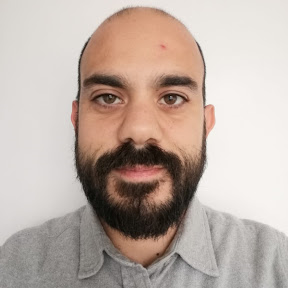2024
Project: Navigating Inequalities: Locating Agency in the Margins and International Aid
Dr. Fabrizio Leonardo Cuccu
( Dublin City University/ Ireland )
Fabrizio Leonardo Cuccu obtained his PhD in Politics and International Relations in 2023 from Dublin City University, where he also served as Assistant Professor. His diverse academic journey has taken him through Italy, Ireland, Morocco, and Tunisia. His research expertise lies in International Relations and Development Studies, with a focus on the North African region. He employs a decolonial lens, integrating Critical Discourse Analysis of international development documents with “vernacular” and “everyday” approaches, to explore the evolution of development programmes in postcolonial contexts. His work has been published in the Cambridge Review of International Affairs and L’année du Maghreb. He is currently working on his first monograph for Routledge.

Project IRF II: Inequality & Mobility
This study focuses on international development and aid programs aimed at fostering economic empowerment in Tunisia, specifically examining how community actors, particularly youth workers engaged with youth and cultural centers in Tunisian suburbs, influence and co-produce these initiatives. Drawing on Bell Hooks’ concept of the margin as a site for counter-hegemonic discourse, the research explores the individual understandings of economic empowerment among local actors to uncover alternative approaches to addressing economic inequalities. Using discourse analysis of international aid documents, semi-structured interviews with NGO representatives, and unstructured interviews with local community members involved in these programs, this research highlights the nexus between global aid agendas and local understandings of economic empowerment. The study analyses the interplay between international aid interventions and localized narratives of inequality. In so doing, it aims to understand how different actors perceive economic disparities and shape strategies to mitigate them. By interrogating the discursive and practical dimensions of international development, this research seeks to foster critical reflections on the efficiency of aid programs and the agency of marginalized communities in reshaping their socio-economic landscapes. The findings aim to contribute to a more nuanced understanding of how international aid can be better aligned with the needs and perspectives of local communities, ultimately enhancing the impact and relevance of development initiatives in Tunisia.
